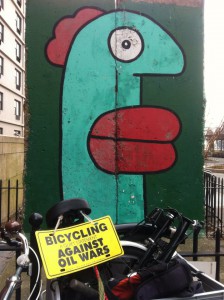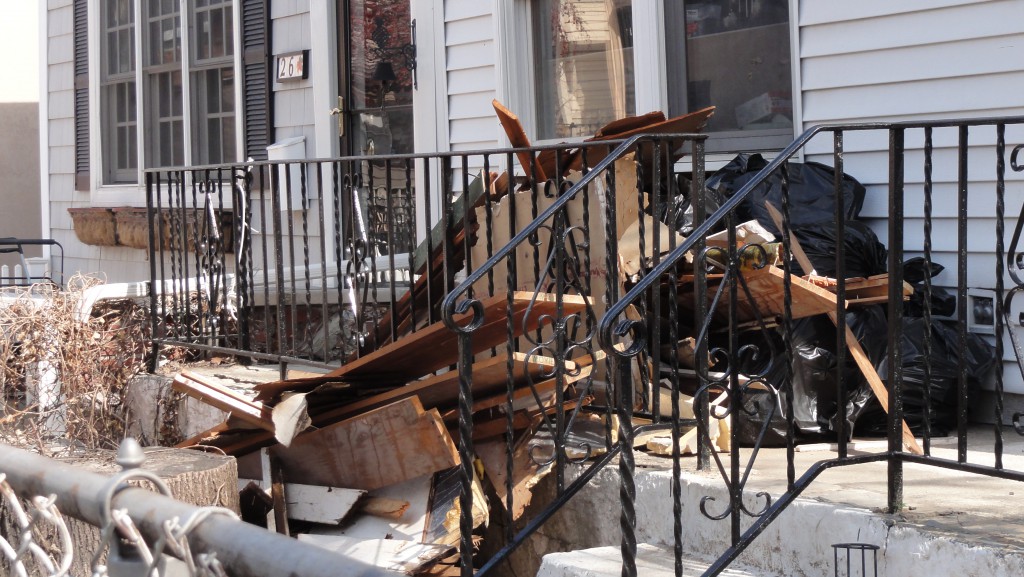It was great to hear the relevant advice and anecdotes from Dr. Saundra McGuire last Friday. It was an especially rich experience to listen to the workshop after having read the assigned reading for Living Lab. A central theme that stood out to me in both the reading and Dr. McGuire’s talk was the importance of achieving that delicate balance of challenge and encouragement that students need to succeed. This is particularly difficult in my Developmental Writing classes since students often begin the semester with a strong sense that they have already “failed” by being placed in my class (rather than in English 1101). This is often exacerbated by the departmental practice of administering a “diagnostic” essay exam in class during the first week of the semester. This helps to determine the students’ strengths and weaknesses, but it also serves as another reinforcement of their poor performance. As a result, students in Developmental Writing often significantly lack motivation. I have been focused on clarity and organization in my classroom, but now I will consciously integrate strategies to increase student confidence from the beginning of the semester. Perhaps, I might integrate a low-stakes writing assignment before the diagnostic, or I might develop another confidence-boosting activity to start things off. Hopefully, this will begin the term by reinforcing the students’ potential rather than their deficits.
Bay Fest in Sheepshead Bay
http://bigbayfest.org/
Sheepshead Bay Survey
It seems not very long ago, we were all nervously watching weather reports on TV waiting for the arrival of hurricane Sandy in New York area. I am originally from a part of India where weather related calamities are extremely rare. Therefore anytime there is a hurricane in the weather forecast or even high velocity winds, for that matter, I tend to get extremely nervous. Mercifully, Sandy did not have any major impact on our neighborhood but the devastation was only a few minutes drive from where we live, mainly in water front communities of Long Island. Most of the devastation caused by the hurricane was something that we saw on TV. For the most part, it was no different than watching the devastation of a major storm in some other part of the country. Visiting Sheepshead Bay on March 15 and listening to the first hand accounts of the devastation made me realize how real the impact was and that there are people who have yet to recover completely from the damage. It was remarkable to see the dedication of local volunteers who showed us around in the neighborhood. I was amazed at the resiliency of people who live there and their determination to move on with their lives as much as they can. This community effort made me appreciate the importance of giving back to the community because we are all part of this human community. I realized how helpless we can be in the face of such extreme events like hurricanes, floods, and earthquakes. It also made me realize how important it is to have emergency preparedness in communities that are the most vulnerable to such natural disasters. It was encouraging that most responders to our surveys did realize the importance of having such emergency plans for their neighborhood. Hopefully we all learned from this hurricane that the only way to minimize loss of life and property is to have efficient emergency response plans in place and that we as citizens should always heed to the warnings issued by the local authorities and respond appropriately before the disaster strikes and it is too late.
Service Learning Brain Dump: thoughts thought / lessons learned
— arrive early, find parking -easy-, look for signs of Sandy few at first then many, smell the ocean, feel the quiet morning streets, watch as the reality replaces preconceptions —
remember the impact of going to a real place
— anticipation plus first-time-nerves “can we actually do this, how will it work, what will it be like, will it be worthwhile, what are we forgetting” —
think of what your students will be thinking
— our morning meeting place is closed – ack! my word it’s cold here on the sidewalk, where will we go to the bathroom? rescued by community partner + local business, (is Best Western ‘local’?) and who is supposed to be helping whom here —
logistics are key, have a backup plan, be ready to think on your feet
— who are these new people, ‘field guides’, nobody told me! roll with it, rearrange groups, reconfigure plans, off we go —
be flexible, be open, build a good relationship with your community partner
— these teeny tiny alley entrances! a different world, a forgotten, sunken world. first house, deep breath, knock knock nobody home, second house mean dog + haze of smoke + ‘no thanks’, third house nobody home, is this it? —
stepping out of your comfort zone is disturbing…
— fourth house, friend of our guide, doors open, mouths open, eyes and minds open, the survey gets done but the story is the real thing, images so strong, the water pouring over the mouth of the alley, the shouts of neighbors, the uselessness of hip waders in neck-high water, rescuing people, rescuing dogs, gathering in the tall building at the far end of the alley, the aftermath, the rebuilding, the bureaucracy, where is the aid?, opportunistic politicians, heroism from the department of sanitation —
…which can open you up to powerful experiences
— one more house, no english, limping half-remembered-spanish through the questions, kids laughing show off english skills when we get stuck, leave with survey data and a smile —
your life skills might turn out to be essential – what a message
— lunch, reflection, pretty windows & water, stories, a shared understanding —
can we give our students this?
Fellows in the Community
For me, the activity that The Living Lab Fellows participated in with volunteers of the Bay Improvement Group (BIG) in Sheepshead Bay on March 15, 2013 created a long lasting impact on my experience and understanding of the people who live on the water front of New York City and on creating an academic service learning project.
Like many of us, I too survived the direct impact of Sandy. Living in a waterfront community myself that will be forever changed but was thankfully not devastated, many memories were brought to life again on this day. I, like so many people in the rest of the City, have move on to other poignant issues ranging from gun control to soda consumption, However, this day reminded me that our attention must remain with rebuilding what makes our diverse city so appealing to so many people from around the world.
Surveying members of the the community provided significant importance to the experience of the community and how we as faculty members can help support communities in need with the added benefit of supporting our course learning objectives as well. Our students are too at a point in their lives that service can help develop a meaning of importance and empathy to those around us and help build greater purpose in what we have to offer our communities.
What I learned about academic service learning on this day and through the process of planning the activity was that the needs of the community must come first and that there must be well defined learning objectives and communication with all the people involved in the project. It also became important to me to make sure that even if there is a long term goal set for the project that immediate action can make a huge impact as well. May it be
that food is donated to a local food bank or that local businesses are patronized. The immediate “give back” helps in as many ways as the long term project will.
Sheepshead Bay Survey
This was a poignant and critical taste of academic service learning for me. I was trying for weeks to image from the comfort of my apartment on a hill in Manhattan that will never see flood damage (unless it is the end of times….) what the people of coastal neighborhoods went through. I never made the effort to swipe my metro card and go see for myself, until now. Seeing things for yourself and trying to find even a brief (15 minute) relationship with someone in the neighborhood (thanks to the local volunteers and very gracious home owners) places such a tragedy into your own sphere of reference, which is something to build upon to take positive steps for the future.
Most important to me was the time listening on the door step or in the foyer to the experience of that night in October, the strong belief that nothing was going to happen in that neighborhood, the sudden realization (to late) that it was happening, the fear and stress of water rising at your doorstep and not knowing when it would stop or go away. I definitely needed to hear this to have any sense at all what they went through and are still going through.
In regard to emergency preparedness for the future, communication of quality information, neighborhood by neighborhood, is the most fundamental requirement. The survey sparked strong and thoughtful responses from the residents as they turned their experience into a learning opportunity for everyone. This perhaps I appreciated most of all.
Reflections on service learning, work, play, peace, war, and March snowstorms.

Photo by Outi Popp Ten years ago we screamed against the war. They laughed. People said we didn’t know what we were doing. We were arrested. Detained. And history has now prooven us right. Keep on screaming people. As my friend Outi points out: 10 years ago we were marching against Iraq war but we were ridiculed. Still hoping 2 c Bush, Cheney, Blair in Haig and still marching and biking for peace! Pic: Piece of Berlin Wall @Battery Park City. Time’s Up & Peace Museum Peace Ride.
Thanks so much for organizing the amazing outing gang.
I wrote a long post on the trip, as well as my weekend speaking at the Museum of the City of New York about community organizing, our peace ride, war, peace, riots and March snowstorms.
I’d love your comments.
http://benjaminheimshepard.blogspot.com/2013/03/peace-riots-activist-history-and.html
Preparation for Friday, March 15, Academic Service Learning experience
In preparation for our seminar meeting this Friday, March 15, please review the attached documents:
- Handout 03/15/13 – ASL project with BWRC and BIG. Contains information on Friday’s activity, meeting location (in Sheepshead Bay), readings, and more.
- Agenda 03/15/13.
- Survey (draft) for 03/15/13 – EMERGENCY RESPONSE PREPAREDNESS. Draft of survey that will be used in our work on Friday.
BIG in Sheepshead Bites
Sheepshead Bites, a blog focused on community activity, has covered a lot of the efforts made by the Bay Improvement Group (BIG). To read about their efforts click here.
http://www.sheepsheadbites.com/tag/bay-improvement-group/
Interdisciplinary Mixer
I wanted to let everyone know about this event coming up on Friday, March 8th — if you have the opportunity to attend I think you’ll find it aligns perfectly with the work you are doing in the Living Lab.
Interdisciplinary Mixer Poster
Interdisciplinary teaching creates connections among traditionally discrete academic disciplines and develops students’ abilities to think critically, integrate knowledge, collaborate, recognize bias, and many other competencies. Hear from your colleagues who have successfully integrated interdisciplinary approaches into their teaching. Share ideas with colleagues and brainstorm ways to collaborate on interdisciplinary teaching and learning.
Friday March 8, 2013
9:30 to 11:30 am
Faculty & Staff Lounge, A632




